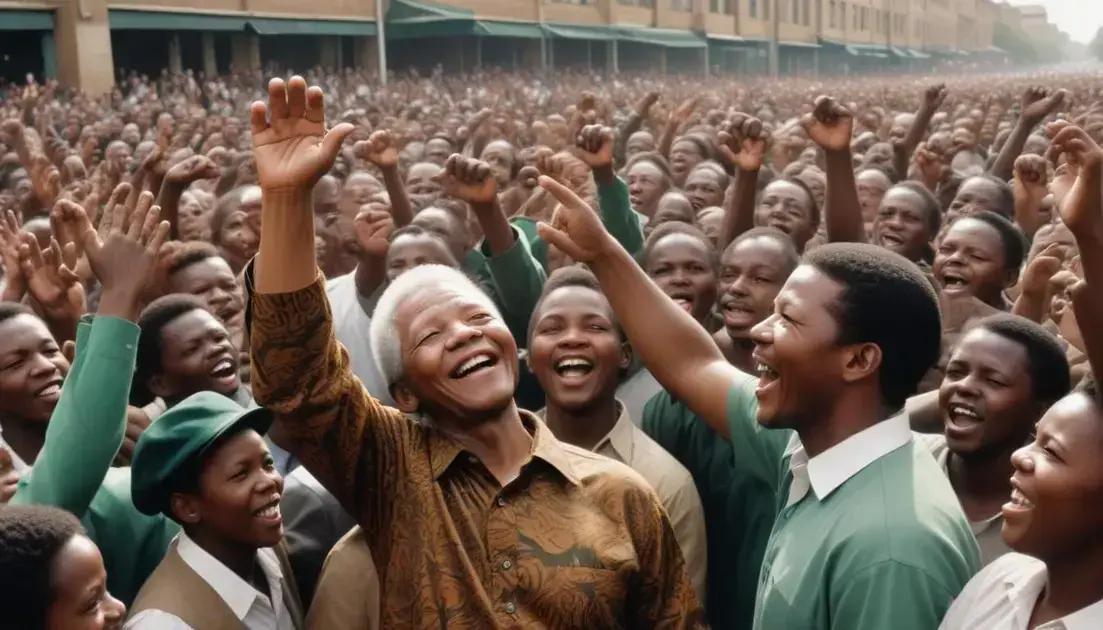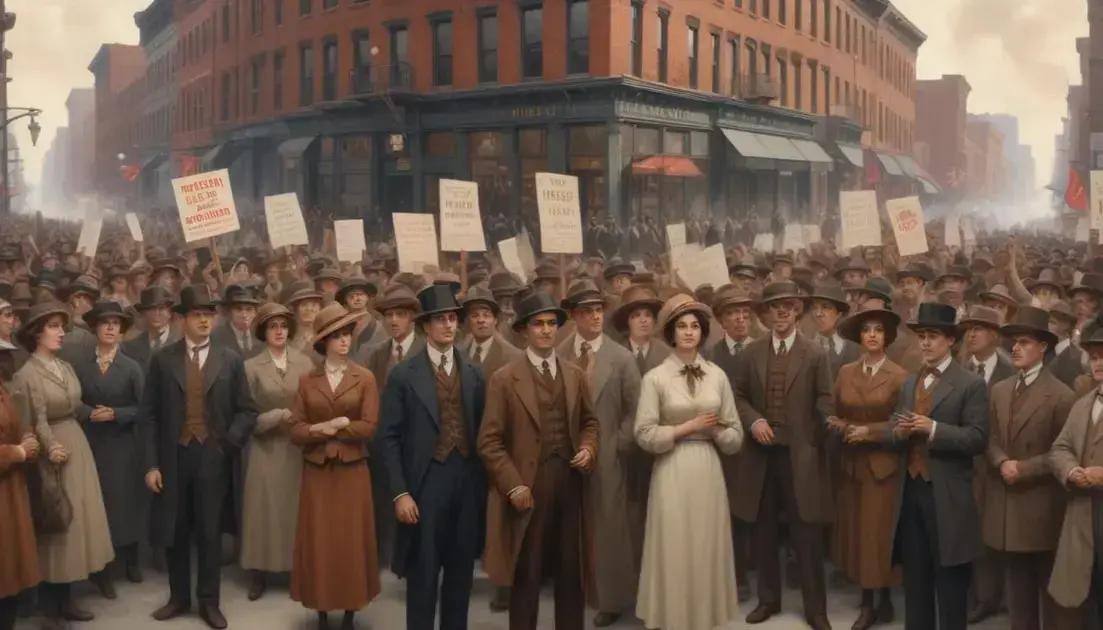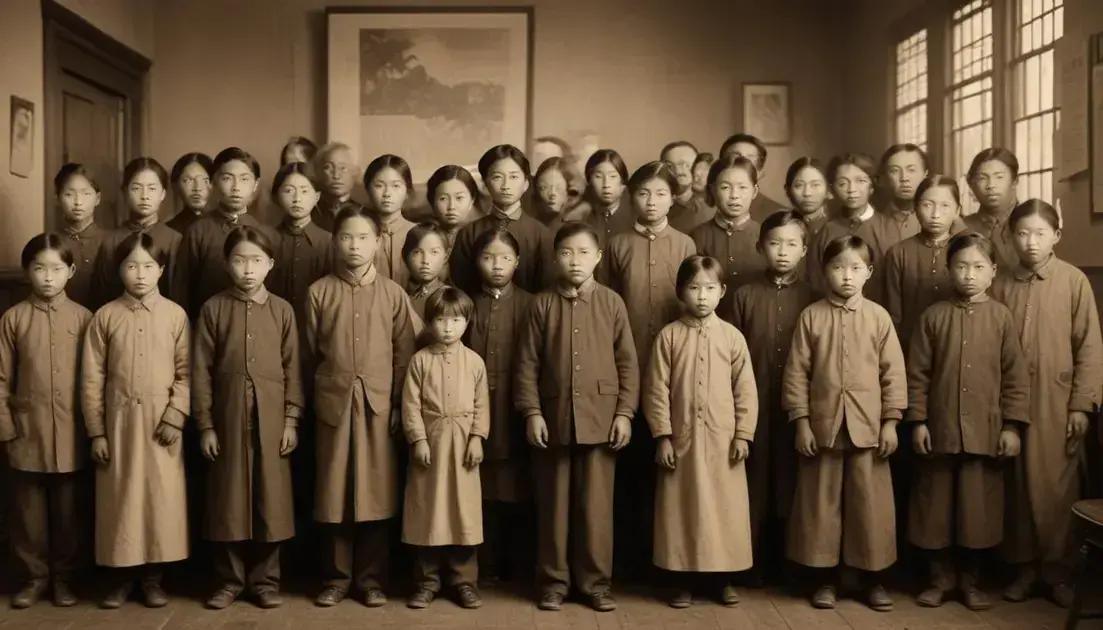
Mandela Free: End of Decades of Political Imprisonment
Nelson Mandela’s release from prison marked a significant turning point for South Africa and inspired global movements for justice and equality. His legacy emphasizes the importance of forgiveness, perseverance, and dialogue, leading to a united and democratic nation. Mandela’s story serves as a reminder of the power of education and compassion in creating lasting change, encouraging individuals to strive for peace and understanding in their communities.
Mandela Free symbolizes hope and transformation. After years of struggle, he emerged as a beacon of democracy for South Africa. Ready to dive into his inspiring journey? Let’s explore!
The Journey to Freedom
The Journey to Freedom describes an incredible testament to resilience. Nelson Mandela spent 27 years in prison for standing up against injustice. He faced unimaginable hardships but never lost his spirit. Every day in prison was a challenge, but he used that time to educate himself and inspire others.
When he finally walked out of prison in 1990, it was a moment of triumph. Mandela became a symbol of hope. His release ignited a movement for change in South Africa and beyond. People cheered, and his spirit of freedom began to shine.
This journey was not just about Mandela. It was about a nation yearning for equality. His vision for a democratic South Africa united people. Together, they dreamed of a better future. Mandela’s leadership helped break down years of oppression.
The transition wasn’t easy. Many challenges awaited him as he stepped into freedom. There was division among the people. However, Mandela’s calm and understanding approach paved the way for negotiations. He advocated for peace rather than revenge.
Yes, the journey to freedom had ups and downs. But with courage and determination, Mandela led South Africa toward democracy. His legacy teaches us the power of patience and unity. It reminds us that true freedom requires commitment and sacrifice.
A Celebration of Heritage
A Celebration of Heritage is all about honoring the past. Nelson Mandela’s release was not just for him. It was a celebration for all South Africans. People from different backgrounds came together to embrace their shared culture.
Heritage means a lot. It includes traditions, languages, and stories that shape who we are. Mandela reminded everyone that these elements connect us. His leadership turned a long fight for freedom into a unifying experience.
Various events took place to mark his release. Concerts, parades, and gatherings filled the streets. Families and friends celebrated together, showing solidarity and joy. Music and dance brought everyone together, reflecting the vibrant culture of South Africa.
This celebration also included remembering those who fought for freedom. Many people lost their lives in the struggle against apartheid. Their courage is part of the shared heritage that must be honored.
The celebration wasn’t just local; it gained international attention. People worldwide supported South Africa’s journey. Messages of hope and unity filled the air. This event showcased how collective spirit can break down barriers.
As the country stepped into a new era, the focus was on acceptance and understanding. Mandela believed in peace, and that belief was key to moving forward. Celebrating heritage helped heal wounds and build a united society.
Impact on South African Politics
Impact on South African Politics has been profound since Mandela’s release. His leadership shaped the country’s path toward democracy. After years of oppression, South Africa had hope again.
Mandela’s emphasis on equality inspired many. He pushed for new policies that aimed to bring justice. His actions showed that peaceful negotiations could replace violence. This was a new approach in politics.
Many political leaders followed his example. They recognized the importance of dialogue and cooperation. This shift helped reduce tensions and foster understanding among diverse groups. People began to see each other as equals.
Furthermore, Mandela’s focus on human rights became a beacon for all. His fight against apartheid opened doors for marginalized voices. Governments worldwide looked to South Africa as a model for change. They admired how Mandela united a fractured nation.
The new constitution reflected these values. It guaranteed equal rights for all citizens, regardless of race. This was a giant step toward a fair society. It showed a commitment to democracy and respect for people.
Mandela’s influence continues today. Modern leaders in South Africa still reference his ideals. His legacy reminds everyone that politics can be about the people. Changes he helped create serve as guiding principles for future generations.
The Global Response
The Global Response to Mandela’s release was powerful and immediate. People all over the world celebrated this historic moment. His freedom symbolized hope not just for South Africa, but for oppressed populations everywhere.
World leaders praised Mandela’s commitment to peace. He showed that change is possible through nonviolent means. Many countries expressed support for South Africa’s new path. They saw an opportunity to promote democracy and justice.
International organizations stepped up too. They offered assistance to help South Africa rebuild. This included economic aid and support for education. The global community recognized the importance of building a strong, united country.
Many people gathered in cities to celebrate Mandela’s freedom. They sang songs and waved flags. Events were held in major cities across the globe. This movement showed solidarity with South Africa’s struggle.
Media coverage was extensive. News outlets shared stories of hope and determination. Mandela’s release was featured prominently. It inspired movements for justice in other parts of the world.
Furthermore, art and culture played an essential role in spreading the message. Musicians, poets, and filmmakers created works that highlighted his impact. These pieces resonated with audiences and kept Mandela’s legacy alive.
Mandela’s story became a lesson in resilience. It connected people from different backgrounds. The global response to his release reinforced the belief that united efforts can lead to meaningful change.
Lessons from Mandela’s Legacy
Lessons from Mandela’s Legacy are invaluable for everyone. His life teaches us about courage and perseverance. Mandela faced many challenges, but he never gave up. He believed in fighting for justice and equality for all.
One key lesson is the importance of forgiveness. Mandela showed that holding onto anger only keeps us stuck. Instead, he encouraged people to forgive and move forward. This created a path for healing and unity.
Another lesson is the power of perseverance. Mandela spent 27 years in prison, yet he remained hopeful. He never lost sight of his goal for a free South Africa. This inspires us to stay focused on our dreams, no matter the obstacles.
Moreover, Mandela emphasized the need for dialogue. He believed conversations could bring enemies together. Talking, listening, and understanding each other’s views is essential. This can help build bridges and resolve conflicts.
His commitment to education is another vital lesson. Mandela once said, “Education is the most powerful weapon you can use to change the world.” Knowledge helps us challenge unfairness and promotes progress.
Lastly, Mandela’s legacy teaches us the importance of leading with compassion. He showed that caring for others is essential in any leadership role. His kindness inspired many and made a difference in the world. Learning from Mandela’s legacy can guide us toward a more just and peaceful future.
Conclusion
In conclusion, Nelson Mandela’s journey and legacy offer valuable lessons for everyone. His life teaches us about the power of forgiveness, perseverance, and dialogue. By embracing these values, we can work towards a more just and compassionate world.
Mandela showed us that change takes time, and staying focused on our goals is vital. He also highlighted the importance of education in creating lasting change. By learning from his experiences, we can inspire future generations.
As we celebrate Mandela’s legacy, let’s remember to lead with compassion and understanding. Together, we can continue to promote peace, equality, and justice in our communities and beyond.


